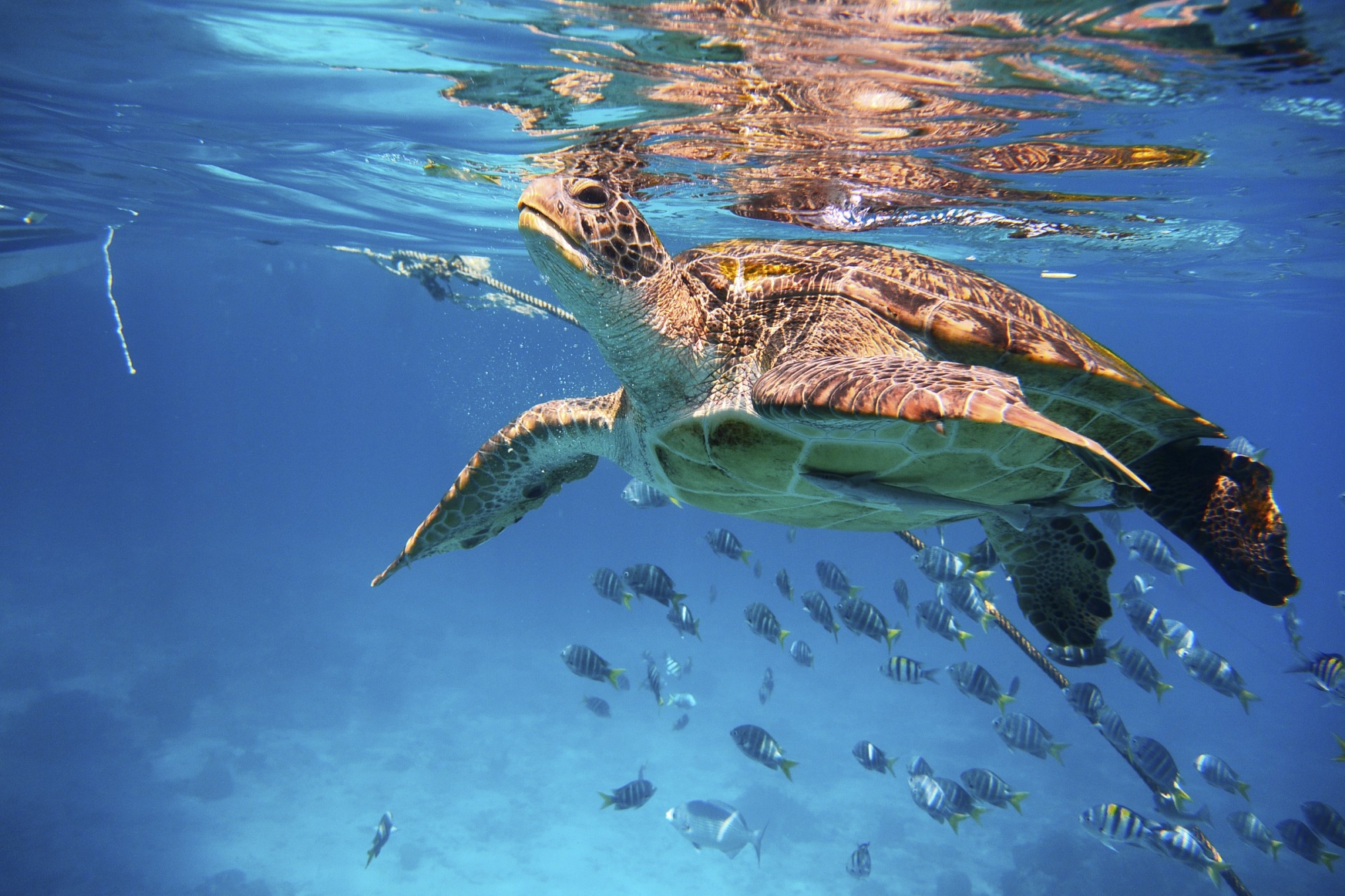A modeling study published in Scientific Reports suggests that rising global temperatures may expand the nesting range of green turtles in the Mediterranean Sea. Under the worst-case climate scenario, the nesting range could increase by over 60 percentage points, spreading west from the current area to include much of the North African, Italian, and Greek coastlines.

Image Credit: Nimedly/Shutterstock.com
Human-caused climate change has caused sea surface temperatures to increase globally, with severe impacts on some marine life. Sea turtles are notably vulnerable because the sex of their offspring relies on the temperature during incubation.
While previous studies have examined the impact of climate change on various sea turtle populations globally, there has been limited research on the green turtle (Chelonia mydas) population in the Mediterranean Sea.
Chiara Mancino and her team developed a model for predicting the suitability of a point on the Mediterranean coastline as a green turtle nesting location. Initially, they gauged the model's predictive capacity by analyzing it against 178 verified nesting sites cataloged from 1982 to 2019, primarily concentrated in Turkey and Cyprus within the eastern Mediterranean.
Their assessment revealed the model's high predictive accuracy, highlighting sea surface temperature, sea salinity, and human population density as the most influential factors determining a location's suitability as a nesting site.
The researchers then simulated the impact of four distinct greenhouse gas emission scenarios on the green turtle nesting range in 2100. Their findings indicated that more severe climate scenarios correlated with substantial expansions in the nesting range across the Mediterranean.
In the modeled worst-case climate scenario, the nesting range surged by 62.4 percentage points and included the North African coastline up to Algeria, extensive regions of Italy and Greece, and the south Adriatic Sea.
However, the authors cautioned that this augmented nesting range in the densely populated central and western Mediterranean regions could intensify human-turtle interactions, particularly on urbanized beaches, potentially compromising nesting success.
Future research is still needed to explore strategies for mitigating these effects and safeguarding the turtles' nesting outcomes in these altered environments.
Journal Reference:
Mancino, C., et al. (2023). Increase of nesting habitat suitability for green turtles in a warming Mediterranean Sea. Scientific Reports. doi/s41598-023-46958-4